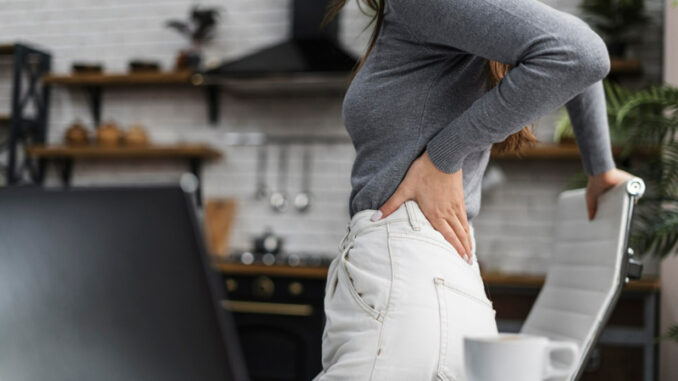
Makati Medical Center (MakatiMed) emphasizes that constipation can lead to lower back pain, urging people to take the condition seriously, especially during the holiday season when indulgence can increase digestive issues.
While many associate back pain with slipped discs, pinched nerves, or poor posture, Dr. Carlo M. Cornejo from MakatiMed’s Section of Gastroenterology explains that constipation can also be a contributing factor.
“An accumulation of stool in the intestines can manifest as lower back pain,” Dr. Cornejo said. “The buildup can put extra pressure on the back muscles, causing soreness.”
Chronic constipation can lead to fecal impaction, a condition where dry stool becomes lodged in the colon or rectum, often affecting older adults. Dr. Cornejo noted that common causes of constipation include inadequate fiber intake, dehydration, excessive alcohol consumption, and a sedentary lifestyle. Certain medications, such as antihistamines and diuretics, can also contribute to the problem.
Symptoms of constipation include stomach fullness, gas, difficulty during bowel movements, and persistent lower back pain. For mild cases, over-the-counter laxatives and stool softeners may provide relief. However, if symptoms persist, Dr. Cornejo advises consulting a doctor, as fecal impaction may require medical intervention.
“Doctors may perform a digital rectal examination to check for stool buildup. A CT scan might be necessary if the impaction is deep in the colon,” Dr. Cornejo explained. Treatment options can include manual stool removal or administering an enema to soften the stool.
To prevent constipation, Dr. Cornejo recommends incorporating more fiber-rich foods like leafy greens, oatmeal, and prunes into your diet, staying hydrated, and maintaining an active lifestyle. Regular bowel movements, ideally 20 to 40 minutes after eating, can also help.
“Remember, chronic constipation or back pain that worsens over time is not normal. It’s your body’s way of signaling a problem,” Dr. Cornejo advised. “Don’t ignore it—seek medical attention rather than masking symptoms with laxatives and pain relievers.”
For further assistance, visit www.makatimed.net.ph.


Be the first to comment